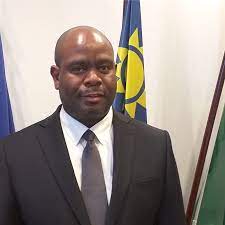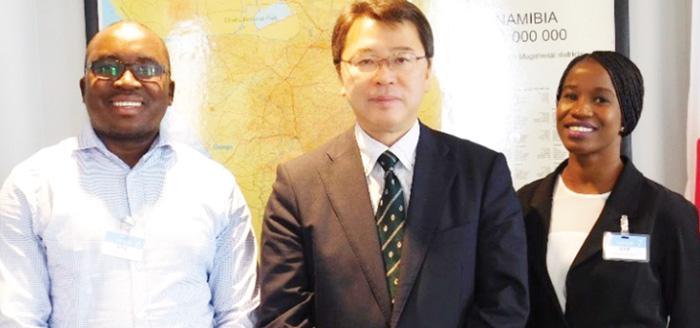
Namibia welcomes the draft programme and budget for 2024-2025 at 216th Session of the UNESCO Executive Board

Namibia has welcomed the Draft Programme and Budget for 2024-2025 (42C/5) and notes with satisfaction that the Global Priority Africa enjoys improved allocation under the Integrated Budget, Ambassador and Permanent Delegate of Namibia to UNESCO, Albertus Aochamub said at the plenary of the 216th Session of the UNESCO Executive Board in Paris, France on Monday.
The session that runs from 10 to 24 May focuses on a pivotal discussion on the medium-term strategy for 2023-2029 and program implementation. The Session pays attention to Global Priority Africa, Gender Equality, and the proposed Draft UNESCO Programme and Budget.
“We further commend the Social and Human Science sector for the speedy implementation of the Open Science and AI Recommendations and even though the achievements in the implementation of these Recommendations are noteworthy, there is a need for further reinforcement of the basic science programmes specifically around STEM education,” added Aochamub.
Aochamub said Namibia endorses the provision of country-level support for sub-sectors, such as Technical and Vocational Education and Training (TVET), as well as literacy programmes that address local needs and priories.
“Today’s youth are facing unprecedented challenges that are impacting their physical and mental health, as well as their employment prospects, with over 1.2 billion young people worldwide affected by major crises, we must take action to support them,” he emphasised.
He said Namibia fully supports the baseline budget outline in the 42 c/5 Education proposal and the 42 C/5 proposal which aims to address the physical and mental health of young people.
Finally, he addressed the question of the safety of journalist which remain a major concern, with the reported incidences of the killing of journalist.
“We, therefore, wish to call on the Secretariat to fast-track the implementation of the key recommendations of the 10th-anniversary consultation process on the United Nations Plan of Action on the Safety of Journalists and the Issue of Impunity,” he added.
He said it is critical to support Member states in establishing national action plans and mechanisms for the safety of journalists.
“We further call on UNESCO to capacitate the specialized prosecutors and investigative units for crimes against journalists,” he concluded.











































